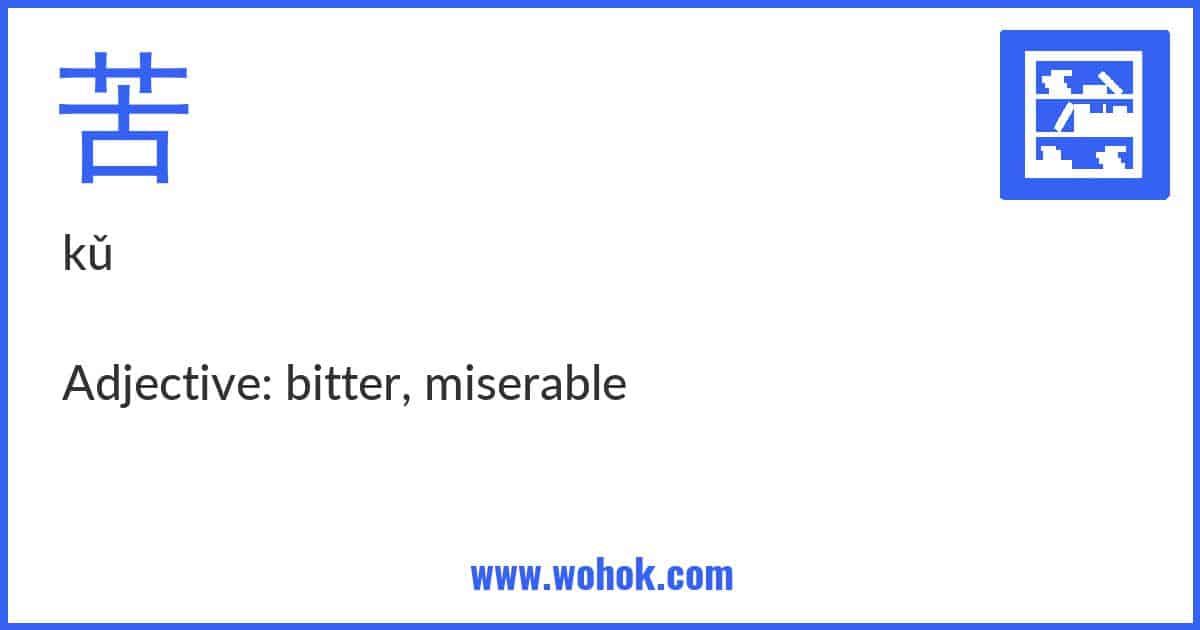The Chinese word 苦 means “bitter” in English. It is commonly used to describe the taste of food or drinks that have a bitter flavor. However, it can also be used to describe a feeling of hardship or suffering, such as in the phrase “苦日子”, which means “hard times” or “difficult days”. Additionally, the word can be used in idiomatic expressions, such as “吃苦耐劳”, which means “to be able to endure hardship and work hard”.
Translation
Adjective: bitter, miserable
Pronunciation
Example Sentences
| Chinese | Pinyin | Engish |
|---|---|---|
| 我喜欢吃苦瓜 | wǒ xǐhuān chī kǔguā | I like to eat bitter melon |
| 他为了成功,付出了很多苦劳 | tā wèile chénggōng, fùchūle hěnduō kǔláo | He worked hard to achieve success |
| 她的生活很苦,但她仍然坚持下去 | tā de shēnghuó hěn kǔ, dàn tā réngrán jiānchí xiàqù | Her life is tough, but she still perseveres |
| 学习中文很苦,但是很有用 | xuéxí zhōngwén hěn kǔ, dànshì hěn yǒuyòng | Learning Chinese is difficult, but very useful |
| 这个药很苦,但是很有效 | zhège yào hěn kǔ, dànshì hěn yǒuxiào | This medicine is bitter, but very effective |
| 他的童年经历很苦,但他变得很坚强 | tā de tóngnián jīnglì hěn kǔ, dàn tā biàn dé hěn jiānqiáng | His childhood was difficult, but he became very strong |
| 这个工作很苦,但是很有挑战性 | zhège gōngzuò hěn kǔ, dànshì hěn yǒu tiǎozhàn xìng | This job is hard, but very challenging |
HSK
苦 is part of HSK Level 4 in both HSK 2.0 and HSK 3.0.
Learning Card


